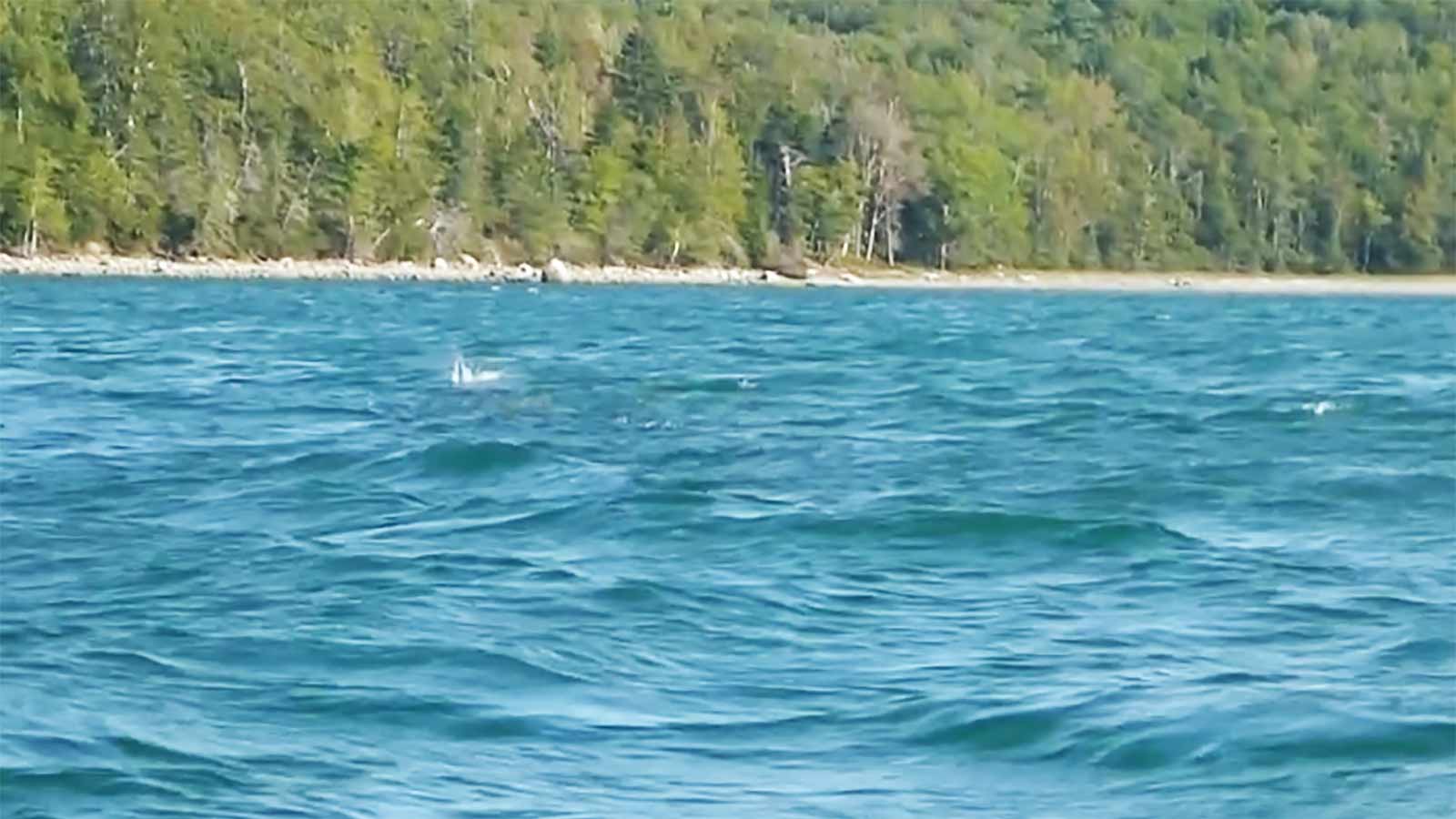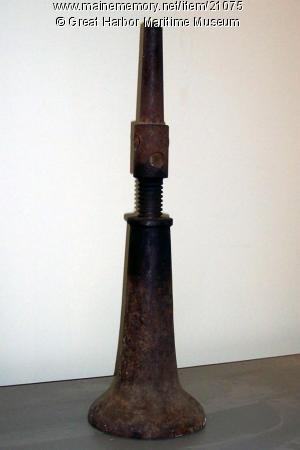
Coastal Conversations Radio Program: Pogies’ return fills a niche in the ocean and economy
Coastal Conversations show: June 24, 2022
WERU 89.9 in Blue Hill and 99.9 in Bangor
Host: Natalie Springuel, Maine Sea Grant
Listen to the show on WERU archives![]()

Most fishermen will tell you that the presence of Atlantic menhaden on the coast of Maine is cyclical. In the last few years, menhaden, or pogies as the small schooling fish are known locally, have returned in high enough numbers to trigger a commercial fishery that holds promise for many fishermen. Their presence is fortuitous. Pogies have filled a lobster bait void left behind by declining Atlantic herring stocks. Many lobstermen, scrambling for bait to feed their lobster traps, have settled on pogies.
There are many others in the Gulf of Maine who are happy to see the pogies return in great numbers – chief among them: the predators like tuna, striped bass, bald eagles and even humpback whales.
On our show today, we explore the world of pogies, the fishermen who harvest them and the species like tuna who eat them. We talk with two fishermen who describe how the fish are caught and why the fishery is increasingly important to Maine fishermen. And we’ll hear from a scientist about how his research on Atlantic Blue-fin tuna also reveals the increasing presence of pogies in Maine waters.
So make a note to tune in Friday afternoon, June 24, 2022, from 4-5 PM, when this month’s Coastal Conversation features pogies and their human and oceanic predators. Only on WERU community radio, 89.9 FM in Blue Hill and online at WERU.org.
Guests
Devyn Campbell, Boothbay Harbor fisherman (fishes for groundfish and in recent years pogies)
Dave Horner, Southwest Harbor fisherman (has fished for lobster, scallop, shrimp, groundfish and in recent years pogies)
Walt Golet, Assistant Professor at the University of Maine’s School of Marine Sciences and lead of the Pelagic Fisheries lab at the Gulf of Maine Research Institute.
Thanks to Dana Morse, Giulia Cardoso, and Justin Stevens for helping with this program.
Listen to the show on WERU archives
More information about Coastal Conversations Radio Program
